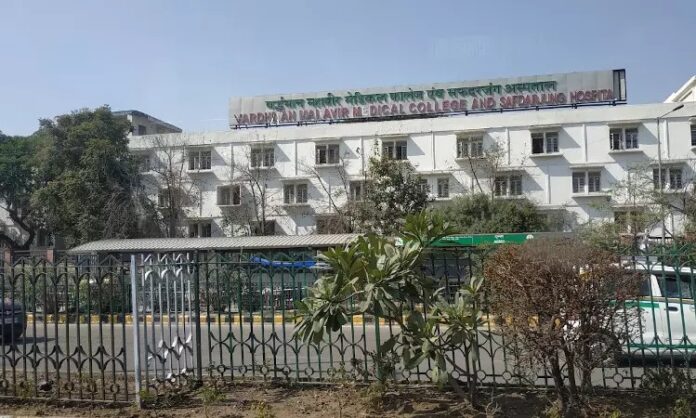Recently, the National Consumer Disputes Redressal Commission (“NCDRC”), New Delhi bench comprising of Justice Ram Surat Ram Maurya (Presiding Member) has held Safdarjung Hospital guilty of medical negligence and directed the hospital to pay Rs. 11.05 lakh to a man whose wife died due to deficiency in service. The NCDRC emphasized that overcrowded wards and doctors’ overtime duties were not acceptable excuses for medical negligence. It reasserted the importance of maintaining medical standards and ensuring accountability within healthcare institutions.
Brief Facts:
The case pertained to a complaint filed Sudhir Kumar Verma (“Husband”) of the deceased patient (“Wife”). He claimed that on April 22, 2006, his wife, who was already being treated for obesity and diabetes, experienced intense abdominal pain. Rushed to Safdarjung Hospital (“Hospital”) with her medical records, the wife purportedly endured substandard care for over 40 hours. Her condition deteriorated after being put on a drip, ultimately leading to her untimely demise.
Aggrieved, the husband filed a consumer complaint in the Delhi State Consumer Disputes Redressal Commission (“State Commission”), seeking a compensation
of Rs 45 lakh. The husband accused the hospital of negligence, asserting that his wife hadn’t received proper medical attention during her stay. He contended that doctors did not attend to her promptly, and no tests were conducted until the next day. Her health continued to worsen, eventually resulting to death .
The Hospital defended itself by asserting that it had diligently provided the best possible care to the wife. They maintained that if the wife’s family was dissatisfied, they had the option to discharge her. The hospital further disclosed that they conducted various tests, including blood count, blood sugar, blood urea, serum electrolyte, and CT scan tests. However, they attributed her inability to be moved to the ICU to a shortage of available ventilators. The hospital also noted that complications like ARF, CVA, DKA, Uranicm, and syplopathy were suspected. The State Commission allowed the complaint filed by the husband and not only ordered the hospital to compensate the family but also highlighted that the hospital couldn’t cite overcrowded wards or doctors’ overtime duties to justify medical negligence. The State Commission further directed the hospital to ensure an adequate number of doctors or specialists were available regardless of working days or holidays.
As a result, the hospital filed an appeal in the National Consumer Disputes Redressal Commission (“NCDRC”), Delhi.
Decision of the Court:
The NCDRC referred to the reports from the Directorate General of Health Services (DGHS), the Medical Council of India (MCI), and the Delhi Medical Council (DMC), all of which condemned the hospital’s conduct. The NCDRC further highlighted that the hospital’s inability to transfer the patient to the ICU or provide ventilator support due to a shortage of beds constituted a glaring oversight.
Furthermore, the NCDRC emphasized that overcrowded wards and doctors’ overtime duties were not acceptable excuses for medical negligence. It reasserted the importance of maintaining medical standards and ensuring accountability within healthcare institutions.
The NCDRC upheld the State Commission’s findings that medical negligence occurred in the treatment of the wife. Consequently, the appeal filed by the Hospital was dismissed, and the husband was awarded compensation of Rs 11,05,000/- along with 7% interest per annum.


